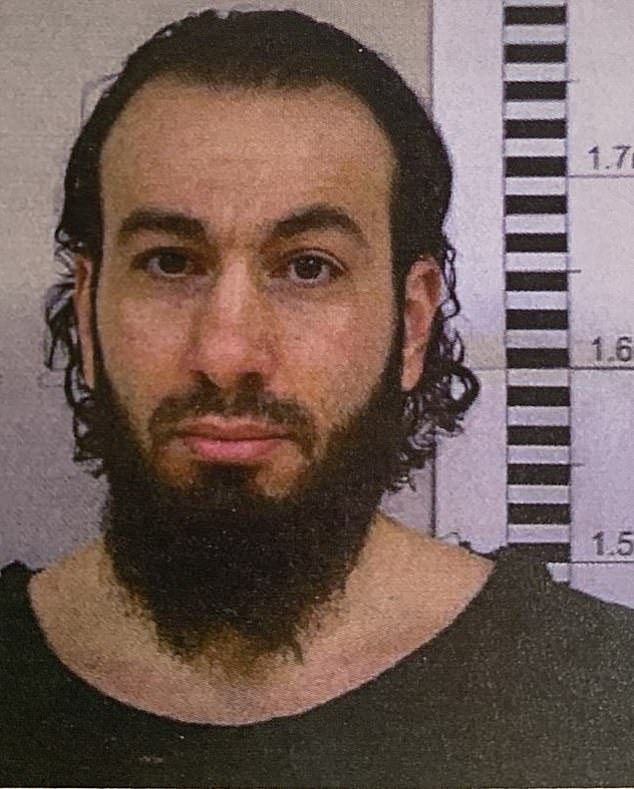EXCLUSIVE
The jailed boss of the notorious Sydney gang Brothers 4 Life has asked a judge to grant him access to a laptop, just days after it was revealed he was trying to partner with the Chinese government to build a resort in Central America.
Bassam Hamzy, 45, launched a civil suit against the New South Wales Corrective Services Commissioner this month in protest at his current conditions at Goulburn’s Supermax prison, one of Australia’s harshest correctional facilities.
Hamzy, who has been in prison for more than two decades for various crimes including murder and large-scale drug supply, lives alone in a cell inside the jail’s high-risk inmate unit.
But the gangland figure – who was convicted just three months ago of running a drugs syndicate from jail – is upset after storage containers were removed from his cell on June 27.
In the matter before the New South Wales Supreme Court, he argued that the eight containers contained material he needed to help him prepare for upcoming legal proceedings.
He also argued, for the same reason, that he needs a laptop with word processing capabilities, as he has arthritis in his thumb that makes it difficult for him to type.
“For more than four years I had eight bathtubs in my cell. The bathtubs are 50 cm long, 30 cm wide and 28 cm deep. I have them in the left corner of my cell, four at a time. The space they occupy is 100 cm by 30 cm,” reads an affidavit filed by Hamzy.
‘The tubs were removed because of fire risk. I’m in a one-door cell. In 25 years I haven’t lit a fire in the prison system.
Bassam Hamzy (pictured) has taken NSW Corrective Services to court in an attempt to gain access to a laptop
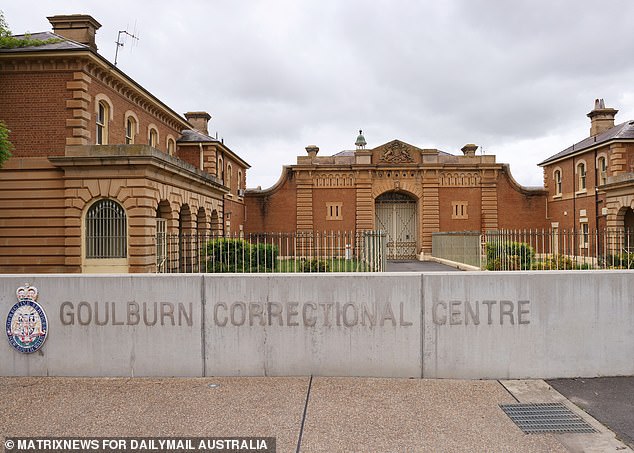
Hamzy is being held at Goulburn maximum security prison in southern New South Wales.
‘I am currently trying to manage ten different court cases. On Friday I have a very complex sentencing process for supplying commercial quantities of drugs. I am already preparing my appeal against this guilty verdict.
‘I also have a trial for perverting the course of justice. I have a family law matter… I need my legal books, reports, transcripts, evidence and case law to prepare for these matters.’
The court heard that Hamzy is still allowed to keep one container of legal materials in his cell, while the rest — 12 containers, one filing box and two duffel bags — are kept in a room he has exclusive access to during the day.
The commissioner told the court that in light of recent fires at correctional facilities across the state, there has been a review and crackdown on pre-existing security policies limiting the property prisoners can accumulate in their cells.
However, Hamzy said his access to his legal facilities, including his bathtubs and a phone that inmates use to call their lawyers, has been hampered by recent prison lockdowns, which have prevented him from leaving his cell for hours, or even days.
He said he currently has a laptop in his cell that is “locked” and has no word processing capabilities and that it makes no sense why he is allowed to have a device but is not allowed to have one to write on.
“I have a severe injury to the top joint of my right thumb. This makes writing extremely painful. Sometimes my thumb gets stuck,” he wrote.
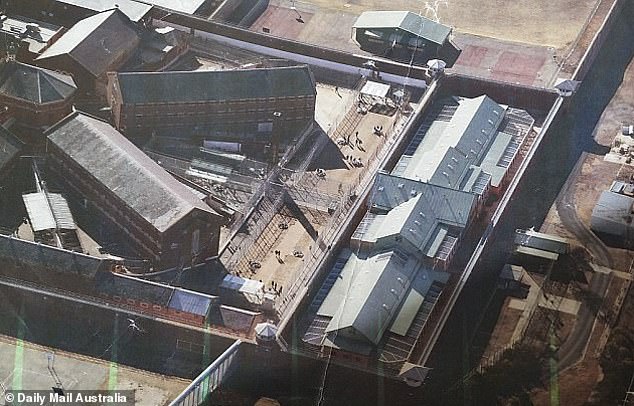
The facility (pictured) has housed the worst criminals this country has produced over the past three decades.
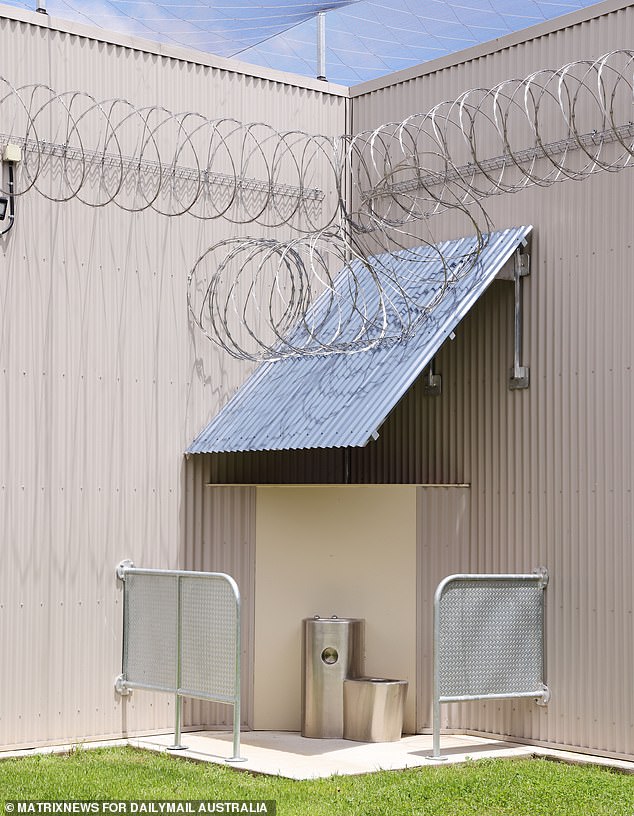
Hamzy is being held in the High Risk Management Unit (pictured)
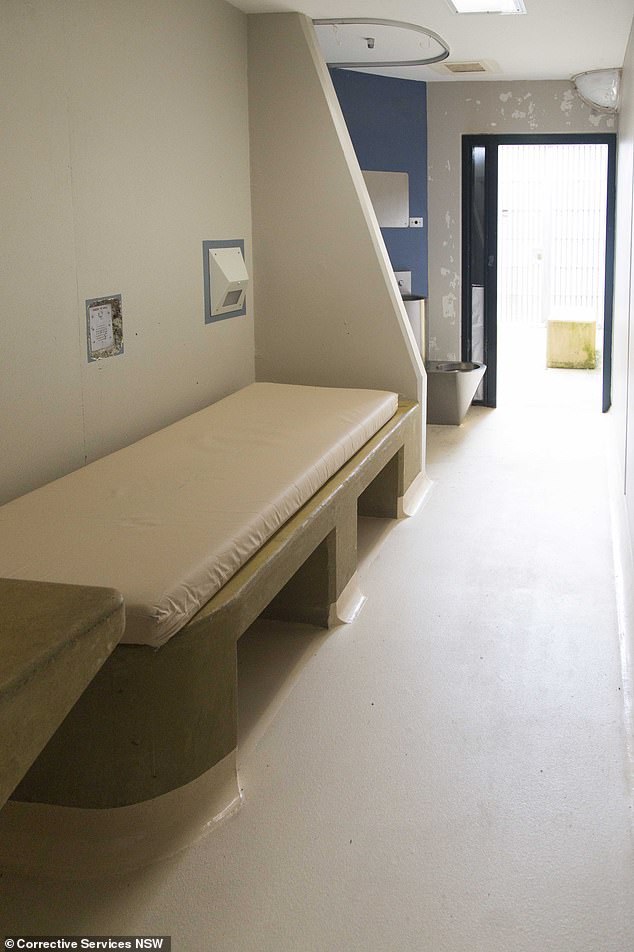
He is upset that a limit has been placed on the number of document containers he can have in his cell. Pictured is the inside of a cell within the HRM unit
‘I have requested a laptop to type my documents and presentations on several occasions but have been denied without any valid reason. I even offered to buy my own laptop.
‘Trying to prioritise matters and documents has not only delayed, impeded and obstructed my effective preparation of my affairs, but has caused me significant stress, anxiety and frustration.’
The Commissioner argued that prisoners’ property posed two security risks: the risk of spreading a fire and the prisoners’ increased ability to conceal contraband items.
The court also heard that Hamzy has a “greater degree of ready access” to his legal materials than other inmates because he has exclusive use of the prison’s day room and can also “rotate the legal materials stored in his cell as he sees fit.”
The Commissioner further argued that the laptops provided to inmates are essentially just e-readers, and while officials are exploring ways to safely add other programs, no other prisoners in the state have devices with word-writing capabilities.
‘In the Commissioner’s view, nothing further is required in the circumstances of this case to ensure impartiality. The Commissioner should not be forced to make any further concessions in order to access Mr Hamzy’s legal materials.
‘Making such an exception in Mr Hamzy’s case not only gives rise to the real practical difficulties described in terms of the ability to provide the kind of computer access Mr Hamzy is requesting, but also gives rise to concerns about the equal treatment of prisoners in the management of prisons.’
However, on Tuesday – the final hearing before Chief Justice Ian Harrison delivers his decision – the Commissioner wrote to the court to announce that the jail had decided Hamzy could have a second laptop to use as he prepares for his trial which starts next month.
The Commissioner said the decision would be reconsidered after the trial was over and the decision to limit access to their tubs would stand.
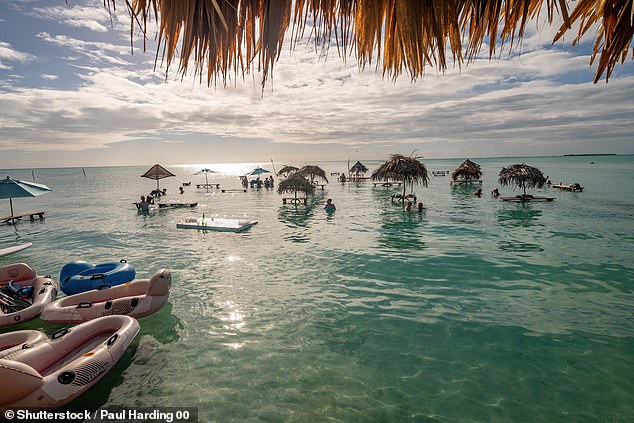
Meanwhile, from behind bars, Hamzy has been working to build a resort in Belize (pictured)
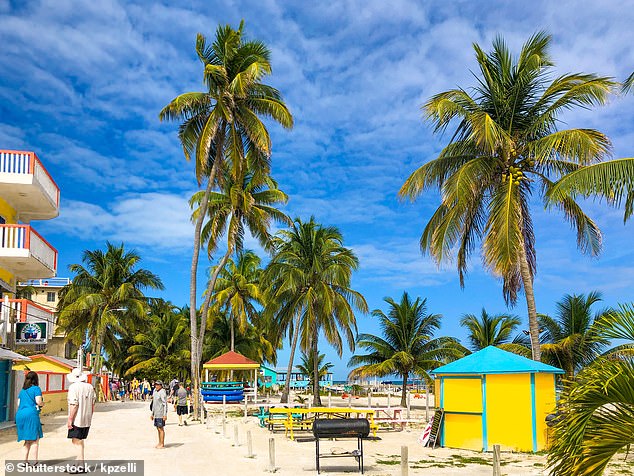
He has contacted the Chinese government to ask for help in financing the project in the Central American country (pictured) in exchange for help with his “political influence”.
Chief Justice Harrison acknowledged that prison security measures were overseen by the prison service, not the courts, but ruled that in the interests of procedural fairness Hamzy needed a laptop without internet capability to prepare his case.
He also suggested it was time for prisons to modernise the facilities provided to prisoners, describing the use of tubs for legal documents as “primitive”.
“At a time in our history when elementary school students are using this technology in the classroom, it seems that the need for a certain degree of lateral thinking in the custodial context may have arrived,” he said.
According to the decision, the device will be paid for by Hamzy and will have to be examined by prison authorities to ensure it meets prison requirements.
Hamzy’s victory comes after The Daily Telegraph Last week he revealed that he has been using his time behind bars to build an alliance with the Chinese government.
According to court documents, Hamzy contacted Chinese officials, through the country’s embassy in Australia, to propose that they help him build a multi-million dollar tourist complex, dubbed “Boss City,” in Belize.
In exchange for China funding the project “partially or fully,” Hamzy said it would help facilitate “recognition” and increase Chinese political influence with the Belizean government.
The proposed resort would feature villas, a water park and a sports stadium, and Hamzy hopes it will eclipse Cancun, Mexico, as the region’s preferred tourist destination, according to the documents.
Hamzy’s mission to develop in Belize, where several of his relatives live, is understood to be completely legal.
Hamzy has pleaded not guilty to kidnapping and is due to go on trial in Sydney District Court on September 2.


